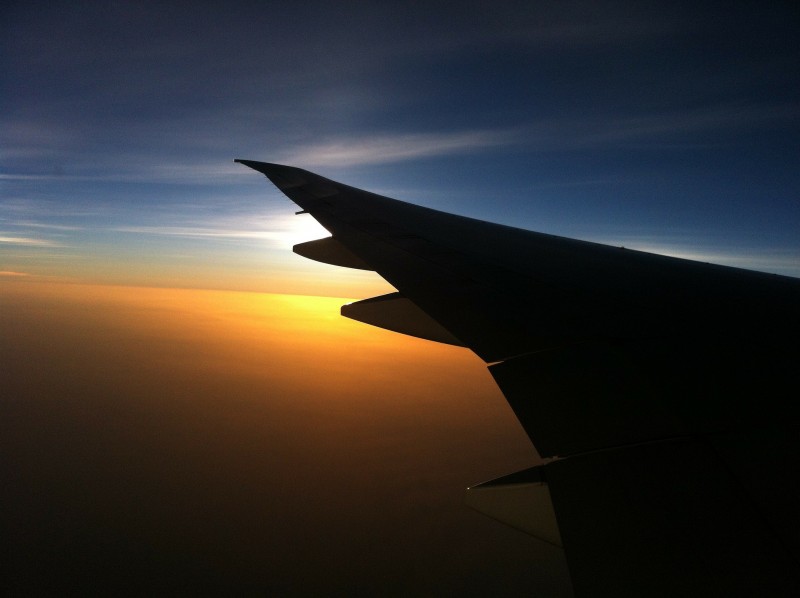
This year has been extraordinary for me in that I’ve made so many long-distance time-zone crossing trips over very short periods of time, both planned and unplanned. While generally I enjoy long plane flights for their insulation against earth-bound work and irritations, it does mean that I also have to suffer that inevitable side-effect: Jet lag.
I recently returned home for three weeks, after three weeks in the UK, only to find myself battling jet lag for two weeks, regaining normalcy, and then going back to the UK for another three weeks. I went back to Malaysia for two weeks, before returning yet again to the UK for another week. My body, if not my mind, went haywire.
Jet lag basically refers to the disruption of your sleep patterns that travelling across time zones wreaks. Your body knows to sleep when it is dark and wake when it is light, but when it is dark for too long or too short a time, invariably you are going to either not be able to sleep or not sleep enough. As a result, you feel tired and woozy during the times when you are supposed to be awake, and alert when you’re supposed to be asleep.
There are of course ways to counter jet lag. My preferred way is to always take night flights and to always travel east to west. Night flights fool your body into thinking that you’ve going to sleep in Kuala Lumpur and wake up in London, even though the flight is 13 hours long and you do spend some of it awake (as I am now, while writing this piece). I find day flights unnatural because your mind and body thinks it should stay awake when you want it to desperately go to sleep. You also find yourself arriving in the late afternoon in London and having dinner at what seems like a reasonable time while your body is screaming at you to go to bed because according to your inner clock, it’s already 3am.
If I have to fly to North America, my preferred route is still to go via London because it means I keep flying west. But sometimes I don’t have the choice and have to fly east because it’s cheaper and slightly quicker. Flying the Pacific route is a nightmare because of this weird phenomenon where you cross the International Dateline and arrive before you left. It sounds nice; you could conceivably have Christmas dinner at home and then fly to Los Angeles and have Christmas dinner again. But boy, does it play havoc with your body clock!
I once spent about eight weeks in the USA on a fellowship and of course had to fly there via the Pacific. I spent the first two weeks battling jet lag. I did everything I had read to counter it: Going out in the California sun, exercising in the gym and as a last resort, taking melatonin, a natural sleep-inducing remedy. The worst part of it was the lack of comprehension by some of the locals I met. People who don’t travel simply don’t understand jet lag.
One of the worst symptoms for me is that apart from my sleep patterns being disrupted, my digestive system also gets confused. If you’re like me and obsessed with getting your system to work properly, then you’ll understand what I mean. There are few things more inconvenient than your body suddenly wanting to clear itself when you’re in an afternoon meeting, simply because it thinks it is just waking up in the morning.
Night flights fool your body into thinking that you’ve going to sleep in Kuala Lumpur and wake up in London, even though the flight is 13 hours long and you do spend some of it awake
Falling asleep in the afternoons is another hazard. This happens even when meetings are not boring. My solution has been to eat some dark chocolate or some fruits and nuts for a shot of energy. It’s even better if you have enough chocolate to share with the others in your meeting so that it doesn’t make you look like you’re just being greedy!
Lying awake at night is certainly no fun, although it has been known to make me more productive than usual. I once wrote a whole project proposal on a long daytime flight simply because I could not sleep. Sleeping pills don’t always help; sometimes I still wake up in the middle of the night and then find myself unable to sleep again. If there is an early appointment the next day, I will invariably panic and try all sorts of techniques to fall asleep, which basically have the odd effect of keeping you awake and frowning.
I truly wonder how airline flight crews do it. Maybe if you keep on flying and crossing time zones, somehow it all balances out.

There is that school of thought which says you have to start adjusting your body to your destination’s time zone even before you take off. But who has the time? If you’re like me, you’re packing right until the last minute, interrupted with trying to solve various issues in the office or writing last-minute letters or articles which you forgot you promised you would write.
If there’s any consolation, jet lag is a hazard of travel these days. And as hazards go, compared with the joys of your voyages, it’s pretty benign. I suppose we’ll just have to live with it.
Picture credits: Pixabay, Pixabay
Read more from Marina here
Read more from Zafigo:
6 hacks for women travellers to be productive as soon as you land
Get all the latest travel updates from Zafigo. Follow us on Facebook, Twitter, and Instagram.